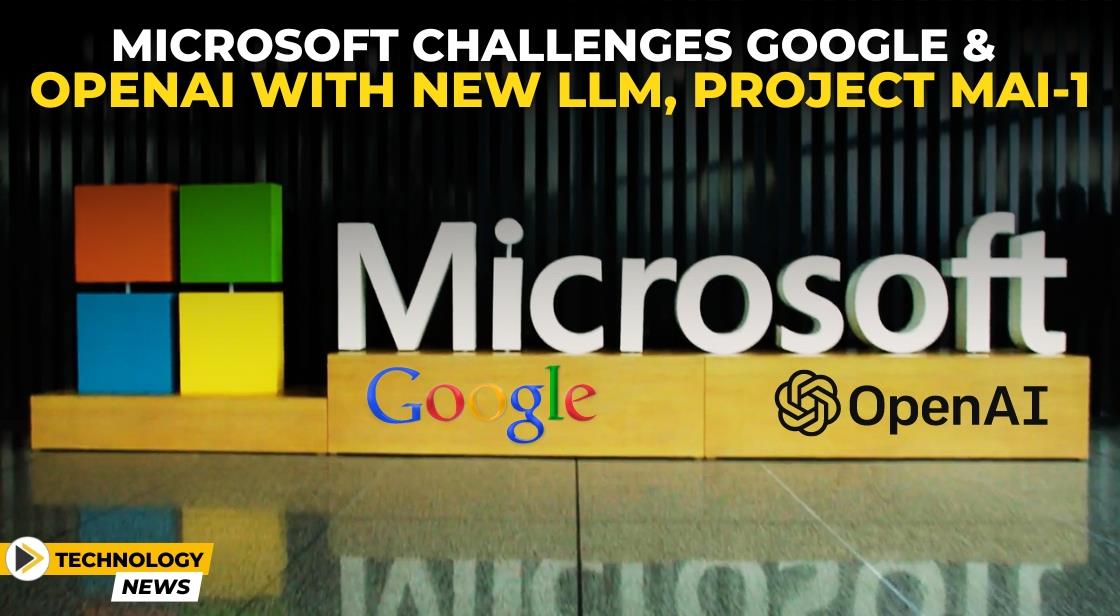Microsoft Challenges Google and OpenAI with New LLM, Project MAI-1

News Synopsis
Microsoft is reportedly developing its own large language model (LLM) called MAI-1, potentially surpassing the capabilities of Google's and OpenAI's offerings. This news comes amidst the growing competition in the field of artificial intelligence, particularly generative AI, which can create human-quality text, translate languages, and write different kinds of creative content.
Unveiling MAI-1: Microsoft's In-House Powerhouse
Led by Mustafa Suleyman, the co-founder of Google DeepMind and former CEO of the AI startup Inflection, MAI-1 is poised to be a significant player in the LLM landscape. Reports suggest that MAI-1 will boast roughly 500 billion parameters, a measure of an LLM's complexity and potential capability. This figure sits between OpenAI's rumored GPT-4 with 1 trillion parameters and Microsoft's previous open-source models like Phi-3 with 3.8 billion parameters.
While a higher parameter count often indicates a more powerful LLM, it also comes with increased computational demands. Critics argue that compared to OpenAI's models, MAI-1's training might be more expensive due to its reliance on high computing power. As Reuters reported, "MAI-1 will be 'far larger' than the previous smaller, open-source models Microsoft had previously trained which means it will be more expensive."
Fortifying Security with AI: A Potential Synergy
This development coincides with Microsoft's recent focus on bolstering its cybersecurity infrastructure. The launch of the Secure Future Initiative (SFI) highlights the company's proactive approach to countering the growing sophistication and frequency of cyberattacks. Experts believe that AI tools like MAI-1 could potentially play a crucial role in developing and strengthening these security measures.
Microsoft's Strategic Investment in OpenAI
Despite its in-house LLM development, Microsoft has also invested heavily in OpenAI, the creators of ChatGPT. This seemingly contradictory strategy allows Microsoft to leverage OpenAI's technology across its productivity software suite, potentially giving them an edge in the generative AI race.
The Road Ahead: Training and Development
Reports indicate that Microsoft is gearing up for MAI-1's development by dedicating a large cluster of servers equipped with powerful Nvidia GPUs (graphics processing units). This, coupled with their efforts to acquire vast amounts of data, suggests a significant investment in training and optimizing the new LLM.
Conclusion:
As Microsoft continues to make strides in AI development with projects like MAI-1, the company is poised to play a significant role in shaping the future of artificial intelligence. With its focus on innovation and strategic investments, Microsoft is well-positioned to compete with industry giants and drive advancements in AI technology.
You May Like









